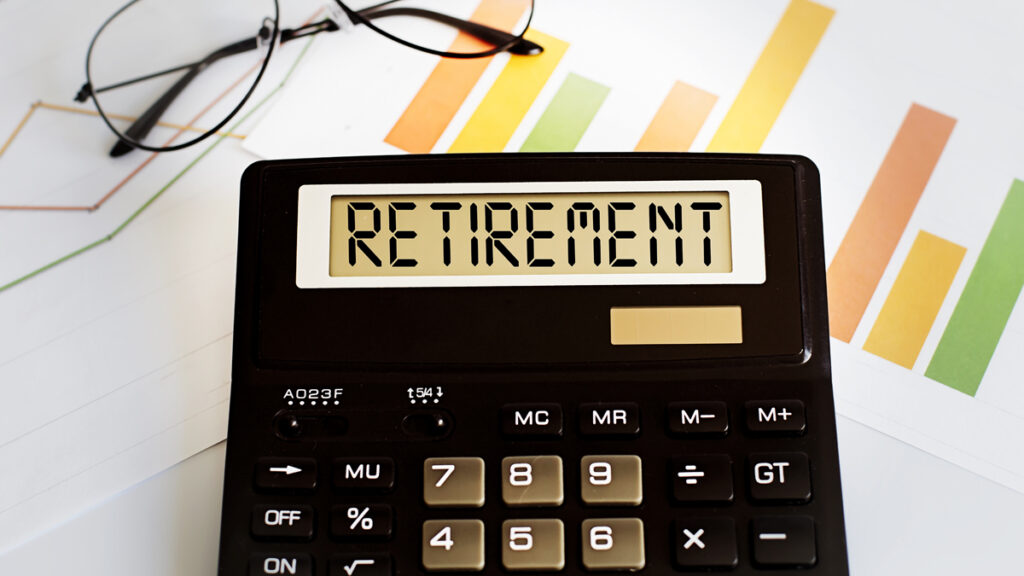Is Retirement Home Rent Tax Deductible in Canada? A Clear Answer
Retirement homes are becoming an increasingly popular option for seniors in Canada. While they offer a range of services and amenities, many seniors are concerned about the cost of living in a retirement home. One question that often comes up is whether or not retirement home rent is tax deductible in Canada.
The answer to this question is not straightforward. While some aspects of retirement home rent may be tax deductible, not all expenses will qualify. Understanding the tax deductible aspects of retirement home rent and eligibility requirements is important for seniors and their families who are considering this option. The Canada Revenue Agency (CRA) has specific guidelines regarding medical expenses and property related expenses that may be eligible for tax deduction.
Key Takeaways
- Retirement home rent may be tax deductible in Canada, but not all expenses will qualify.
- The Canada Revenue Agency has specific guidelines for medical expenses and property related expenses that may be eligible for tax deduction.
- Seniors and their families should carefully consider their financial planning for retirement home rent and consult with a tax professional for guidance on eligibility and tax deductions.
Understanding Retirement Home Rent in Canada
Retirement homes are a popular option for seniors who need assistance with daily living but do not require the level of care provided by a nursing home. They provide a range of services, including meals, housekeeping, laundry, and personal care.
Many seniors wonder if the rent they pay for a retirement home is tax-deductible in Canada. Unfortunately, the answer is no. The Canada Revenue Agency (CRA) does not consider retirement home rent to be a medical expense, so it cannot be claimed as a deduction on your tax return.
However, there are some exceptions. If you require medical care and the retirement home provides it, you may be able to claim a portion of the cost as a medical expense. For example, if you have a medical condition that requires a nurse to visit you daily, and the retirement home provides this service, you may be able to claim a portion of the cost as a medical expense.
It’s important to note that the rules around claiming medical expenses can be complex. You may need to provide documentation to support your claim, and the amount you can claim may be limited by your income. If you’re unsure whether you can claim any portion of your retirement home rent as a medical expense, it’s best to consult a tax professional.
In summary, retirement home rent is not tax-deductible in Canada unless it is for medical care. If you’re considering moving into a retirement home, it’s important to factor in the cost of rent when planning your budget.
Tax Deductible Aspects of Retirement Home Rent
Retirement home rent can be a significant expense for seniors, and many wonder if it is tax-deductible in Canada. While the answer is not straightforward, there are some aspects of retirement home rent that may be tax-deductible.
Firstly, it’s important to note that rent payments for a retirement home are generally not tax-deductible for personal income tax purposes. However, if the resident has a medical condition that requires them to live in a retirement home, they may be eligible to claim a portion of the rent as a medical expense on their tax return.
To be eligible, the resident must have a medical certificate from a qualified medical practitioner that certifies the need for the retirement home. The portion of the rent that is eligible to be claimed as a medical expense is limited to the portion that is specifically related to the medical care provided by the retirement home, such as attendant care salaries.
It’s also worth noting that if the resident is renting out their own home while living in a retirement home, they may be able to deduct certain expenses related to the rental property. This includes expenses such as property taxes, mortgage interest, and maintenance costs. However, it’s important to keep in mind that any rental income earned from the property must be reported on their tax return.
For those who are receiving board and lodging as part of their retirement home arrangement, it’s important to note that the cost of these services is generally not tax-deductible. However, if the resident is receiving board and lodging as part of a medical care arrangement, they may be able to claim a portion of these costs as a medical expense on their tax return.
In summary, while retirement home rent payments are generally not tax-deductible in Canada, there are certain aspects of retirement home expenses that may be eligible for tax deductions. It’s important for seniors to speak with a qualified tax professional to determine their eligibility for any tax deductions related to their retirement home expenses.
Eligibility for Tax Deduction
Retirement home rent may be tax-deductible in Canada under certain circumstances. To be eligible for a tax deduction, the individual must have a medical condition that requires them to live in a retirement home. The Canada Revenue Agency (CRA) considers retirement home rent as an eligible medical expense if the individual requires 24-hour access to care and supervision.
Age, income, and marital status do not affect eligibility for the tax deduction. However, the individual must have a valid prescription from a medical practitioner stating that they require 24-hour access to care and supervision. The prescription should also specify the length of time the individual requires care.
Individuals who receive the Guaranteed Income Supplement (GIS), Allowance, or Pension Income may be eligible for a higher tax credit. The amount of the tax credit varies depending on the province of residence and the individual’s income.
Individuals with a disability may also be eligible for the Disability Tax Credit (DTC), which can provide additional tax relief. The DTC is a non-refundable tax credit that reduces the amount of income tax owed.
It is important to note that only the portion of the retirement home rent that relates to care and supervision is eligible for the tax deduction. The portion of the rent that relates to accommodation is not eligible.
In conclusion, retirement home rent may be tax-deductible in Canada if the individual requires 24-hour access to care and supervision due to a medical condition. The amount of the tax credit varies depending on the province of residence and the individual’s income. Individuals with a disability may also be eligible for additional tax relief through the Disability Tax Credit.
Role of Canada Revenue Agency
The Canada Revenue Agency (CRA) is responsible for administering tax laws and regulations in Canada. As such, it plays a significant role in determining whether retirement home rent is tax deductible in Canada.
According to the CRA, individuals may be eligible to claim the Medical Expense Tax Credit (METC) for expenses related to nursing homes and retirement homes. To claim the METC, individuals must have paid for the expenses themselves or had a spouse or common-law partner pay for them. The expenses must also be supported by receipts and other relevant documentation.
To determine whether retirement home rent is eligible for the METC, individuals should consult the CRA’s website or seek advice from a tax professional. In general, the CRA considers expenses related to medical care, including accommodation expenses, to be eligible for the METC if they meet certain criteria.
Individuals may also be eligible to claim other tax credits and deductions related to retirement home rent. For example, if an individual is required to pay for attendant care services while living in a retirement home, they may be able to claim these expenses as a medical expense deduction on their tax return. To do so, they would need to obtain a completed T2200 form from their employer or the retirement home.
Overall, the CRA plays an important role in determining whether retirement home rent is tax deductible in Canada. Individuals should consult the CRA’s website or seek advice from a tax professional to determine their eligibility for tax credits and deductions related to retirement home rent.
Medical Expenses and Tax Deduction
In Canada, taxpayers can claim medical expenses as deductions on their taxes. These expenses include costs associated with nursing homes, retirement homes, and care in a facility. However, the eligibility of these expenses for tax deduction depends on several factors, such as the medical condition of the individual, the kind of facility they reside in, their income level, and dependency on others.
Nursing home fees can be claimed as medical expenses if they are paid by the taxpayer or their spouse or common-law partner. The Medical Expense Tax Credit (METC) can be claimed for these costs, but only if the individual is in the nursing home for medical reasons. If the individual is in the nursing home for personal reasons, such as convenience or to receive custodial care, the fees are not eligible for tax deduction.
Similarly, retirement home rent can also be claimed as a medical expense if the individual is in the retirement home for medical reasons. If the individual is in the retirement home for personal reasons, such as to downsize or to live in a community with other seniors, the rent is not eligible for tax deduction.
Care in a facility, such as attendant care, can also be claimed as a medical expense. The expenses must have been paid for the care of the taxpayer, their spouse or common-law partner, or their dependant.
It is important to note that not all medical expenses are eligible for tax deduction. Certain medical expenses require a certification, and some expenses, such as cosmetic procedures or over-the-counter medications, are not eligible for tax deduction.
In conclusion, nursing home fees, retirement home rent, and care in a facility can be claimed as medical expenses for tax deduction in Canada, but only if they are paid for medical reasons. It is important to consult with a tax professional to determine the eligibility of medical expenses for tax deduction.
Property Related Expenses and Tax Deduction
When it comes to retirement homes, the rent paid by the tenant is not tax-deductible in Canada. However, there are some property-related expenses that may be eligible for tax deductions.
Property Taxes
Property taxes are taxes paid to the municipality where the property is located. These taxes are usually based on the assessed value of the property. In Canada, property taxes are tax-deductible. If you own a rental property, you can deduct the property taxes paid on that property from your rental income.
Repairs and Maintenance
Repairs and maintenance expenses are expenses incurred to keep the property in good condition. These expenses are tax-deductible in Canada. If you own a rental property, you can deduct the cost of repairs and maintenance from your rental income.
Capital Expenses
Capital expenses are expenses incurred to improve the property or increase its value. Examples of capital expenses include renovations, additions, and major repairs. Capital expenses are not tax-deductible in Canada. Instead, they are added to the cost of the property and can be used to reduce the capital gain when the property is sold.
Home Equity
Home equity is the difference between the market value of the property and the outstanding mortgage balance. Home equity can be used to obtain a loan or line of credit. The interest paid on these loans may be tax-deductible in Canada if the loan is used for investment purposes.
Rental Property
If you own a rental property, you can deduct the expenses incurred to earn rental income. These expenses include property taxes, repairs and maintenance, insurance, and mortgage interest. You can also deduct capital expenses over a period of time using the Capital Cost Allowance (CCA).
Statement of Real Estate Rentals
If you own a rental property, you must file a Statement of Real Estate Rentals (Form T776) with your tax return. This form summarizes the rental income and expenses for the property. It is important to keep accurate records of all rental income and expenses to ensure that you can claim all eligible tax deductions.
In summary, while retirement home rent is not tax-deductible in Canada, there are several property-related expenses that may be eligible for tax deductions. These expenses include property taxes, repairs and maintenance, and mortgage interest. It is important to keep accurate records of all rental income and expenses to ensure that you can claim all eligible tax deductions.
Provincial Differences in Tax Deduction
When it comes to tax deductions for retirement home rent in Canada, there are some provincial differences to keep in mind. Depending on the province of residence, different deductions and credits may be available. Here are some examples:
Quebec
In Quebec, the Solidarity Tax Credit may be available to eligible individuals who live in a retirement home. This credit is based on factors such as the person’s income, family situation, and housing costs. Additionally, Quebec residents may be eligible for the Quebec Sales Tax (QST) rebate for certain expenses related to retirement homes.
Ontario
Ontario residents may be eligible for the Ontario Trillium Benefit, which includes a component for property tax and energy costs. While this benefit is not specifically for retirement home rent, it may still provide some relief for eligible individuals. Additionally, residents of Northern Villages in Ontario may be eligible for a deduction for housing expenses.
Manitoba
As mentioned in the search results, Manitoba residents may be eligible for the Education Property Tax Credit for rent paid. This credit allows for a deduction of 20% of rent paid, up to a maximum of $525. It is important to note that this credit is only available for renters, not homeowners.
It is important to research the specific deductions and credits available in your province of residence, as they can vary widely. Additionally, it may be helpful to consult with a tax professional to ensure that you are taking advantage of all available deductions and credits.
Miscellaneous Expenses and Tax Deduction
When it comes to tax deductions in Canada, there are a number of miscellaneous expenses that may be eligible. These expenses can range from utilities and interest payments to attendant care and legal fees. However, it is important to note that not all expenses are eligible for tax deductions, and the rules and regulations surrounding these deductions can be complex.
For those who are self-employed or use their home for business purposes, there may be additional deductions available. These can include expenses related to home office use, bookkeeping, and advertising. However, it is important to ensure that these expenses are reasonable and necessary for the operation of the business.
Landlords may also be eligible for tax deductions on expenses related to their rental properties. This can include salaries paid to employees, administration fees, and legal fees. However, it is important to keep accurate records and ensure that these expenses are directly related to the rental property.
For students, there may be deductions available for tuition fees and interest payments on student loans. However, it is important to note that these deductions may only be available if the student is enrolled in a qualifying program.
Finally, it is important to be aware of any penalties or interest charges that may be incurred as a result of late or incorrect tax filings. These charges may not be eligible for tax deductions and can add up quickly if not addressed promptly.
Overall, it is important to consult with a qualified accountant or tax professional to ensure that all eligible expenses are claimed and that all rules and regulations are followed.
Financial Planning for Retirement Home Rent
Retirement home rent in Canada is not tax-deductible, but there are ways to manage the cost of living in a retirement home. Financial planning is essential to ensure that retirees can afford the rent and maintain a comfortable lifestyle.
Managing Retirement Home Rent
Retirees can manage retirement home rent by considering their income sources, such as wages, benefits, savings, funds, and investment. They can also explore other options like downsizing to a smaller retirement home or moving to a less expensive location.
Income Sources
Retirees can use their income sources to pay for retirement home rent. They can use their pension, government benefits, and investment income to cover the cost of living in a retirement home. Retirees can also use their savings or sell assets to generate income.
Downsizing
Downsizing to a smaller retirement home is another option for managing retirement home rent. Retirees can sell their current home and move to a smaller retirement home that is more affordable. Downsizing can also reduce the cost of living expenses like utilities, property taxes, and maintenance.
Moving to a Less Expensive Location
Retirees can also consider moving to a less expensive location to manage retirement home rent. Moving to a different city or province can reduce the cost of living expenses like rent, groceries, and utilities. Retirees can research different locations and compare the cost of living to find the most affordable option.
In conclusion, financial planning is crucial for managing retirement home rent in Canada. Retirees can use their income sources, downsize to a smaller retirement home, or move to a less expensive location to manage the cost of living.
Frequently Asked Questions
Are retirement home expenses tax deductible for seniors in Canada?
Yes, certain retirement home expenses can be tax deductible for seniors in Canada. However, the eligibility and amount of the deduction may vary depending on the specific circumstances of the individual.
Which retirement home expenses are tax deductible in Canada?
Generally, the following expenses related to retirement homes may be tax deductible in Canada:
- Monthly rent or fees paid for accommodation
- Meals provided by the retirement home
- Housekeeping and cleaning services
- Personal care services provided by the retirement home staff
- Medical expenses that are not covered by insurance or other programs
Can seniors claim rent on their taxes in Canada?
Seniors who live in retirement homes may be able to claim a portion of their rent as a tax deduction. However, the eligibility and amount of the deduction may depend on various factors, such as the type of retirement home and the services provided.
Are home care expenses tax deductible in Canada?
Yes, home care expenses may be tax deductible in Canada if they are incurred for medical reasons and are not covered by insurance or other programs. However, the eligibility and amount of the deduction may vary depending on the specific circumstances of the individual.
Can I claim hospital parking on my taxes in Canada?
No, hospital parking expenses are not tax deductible in Canada. These expenses are considered personal in nature and are not eligible for a tax deduction.
Can retirees claim moving expenses in Canada?
Retirees may be able to claim moving expenses in Canada if they meet certain criteria, such as moving to a new location for employment or business purposes. However, the eligibility and amount of the deduction may depend on various factors, such as the distance of the move and the type of expenses incurred.




